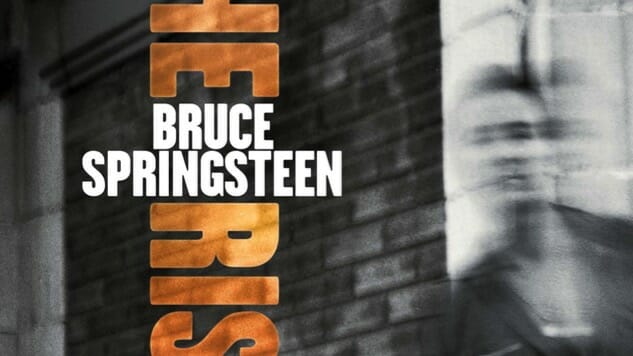It seemed clear from the moment that Bruce Springsteen released The Rising in 2002 that the album would become a kind of musical shorthand for 9/11. Not for the terrorist attacks themselves, but for the aftermath, as we collectively grappled with the weight of shock and grief, and discovered a reservoir of strength and resilience that had gone largely unnoticed before the attacks.
At the time, I wasn’t sure having an overarching mass-culture artistic representation was such a great idea. The airplane hijackings that resulted in the destruction of the World Trade Center in New York, gouged a hole in the Pentagon outside Washington DC and plowed under a field in western Pennsylvania were highly public displays, to be sure. But the effects of that day on me, and my memories of where I was and what I was thinking and feeling, were unique. Though 9/11 was very much a shared experience for people around the world, my relationship to it was—like many people’s, I suspect—personal. That seemed like something worth preserving, safeguarding lest its power diminish from conflating my perspective with a bird’s-eye retelling constructed for anyone who cared to listen, by a singer who “gives voice to thousands, even millions, who have no platform of their own,” as I wrote in my review of The Rising for the Hartford Courant.
Of course, The Rising has invariably reminded me of 9/11 ever since, particularly the title track, “My City of Ruins” and “Lonesome Day.” They’re the best songs on the album, and also the only tracks that I have frequently returned to over the years, apart from hearing the occasional live rendition of one of the others when I’ve seen Springsteen in concert. In fact, until last weekend—the 15th anniversary of 9/11—I hadn’t listened to The Rising in its entirety since probably 2003.
Suffice to say I’ve changed my tune. The 15 songs on The Rising aren’t Springsteen’s best, apart from a few that stand as tall as anything he’s written. And the album still feels too long. In some ways, though, these tunes are among his most essential. Just as Springsteen gave voice to the restless undercurrents of impetuous youth on Born to Run, or the stagnation of the American dream on Nebraska or Born in the U.S.A., The Rising captures the grim determination, bewilderment and attempts to make some kind of sense of what had happened. It’s a scattershot album that seeks to encompass what was a chaotic time.
Listening to it again 14 years later brings back the eerie feeling of standing at a precipice, knowing that what we were seeing in real time would irretrievably change the world. The intervening years have shown just how sweeping those changes have been, at home and abroad. In an era of unintended consequences, “You’re Missing” now could just as easily portray the family of an American soldier killed in Afghanistan or Iraq as a firefighter at Ground Zero, or someone who worked in the Twin Towers. “My City of Ruins,” written about Asbury Park, New Jersey, but indelibly linked to 9/11, could describe Baghdad, or Aleppo, or Paris after the attacks there last November. “Into the Fire,” “Nothing Man,” “Worlds Apart,” all of them can support more expansive interpretations now than Springsteen surely intended when he wrote them.
Musicians often talk about how the meaning of their songs evolves over time. Sometimes songwriters aren’t able to pinpoint what a song is about until long after they’ve written it. The beauty of The Rising—maybe even the genius of The Rising—is the way it has taken on new meanings over time. Plenty of albums do that for listeners, of course, but few of them are about a specific, incredibly fraught period in time. Yet that time has proven to be only a starting point for many of these tunes. As Vulture notes in a ranking of all 314 of Springsteen’s songs, the song “The Rising” “has swung from tribute to triumph to remembrance.” And, it’s worth adding, without ever feeling dated.
In that way, The Rising has become a living memorial. The album is, in one sense, a document of the days and weeks following 9/11, but its reach has become so much longer. All these years later, that feels proper. Having such an elegy come from Springsteen, well, that just feels right.
